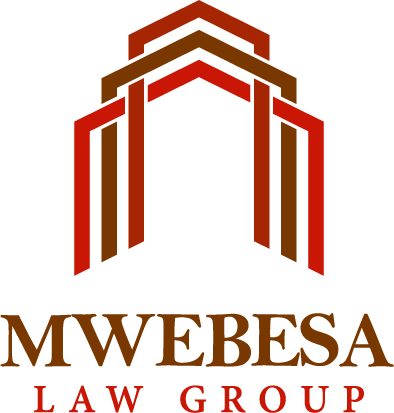Cross-border mergers and acquisitions (M&As) have become a strategic tool for companies seeking to expand their footprint in the global business landscape. However, these transactions involve intricate legal and tax considerations that must be carefully navigated to ensure compliance with relevant laws and regulations.
Thanks to globalization, now it is possible for businesses in different countries to come together as a single entity with the sole aim of pushing their business agenda in the global market. Through cross border mergers and acquisitions, businesses have been able to easily spread their operations into other countries that due to market and logistical demands it could have been very difficult to set up a business. However, the success of cross border mergers and acquisitions depends on a number of factors that ought to be fully met in order to guarantee that success will be realized and maintained all through the years of operation in this new market.
This piece focuses on the key tips surrounding taxation and legal considerations that investors and businesses should be aware of when engaging in cross-border M&A transactions with Tanzanian companies.
The definition of merger in the Competition Act states that it’s an acquisition of shares, business or assets resulting in “change of control.” What constitutes “change of control” has always been an ambiguity as the Competition Act does not define the same. However, a Fair Competition Tribunal case, defined change of control for purposes of merger and acquisitions, as:
“the potential ability of the acquiring firm to materially influence the business policy and operations of the Target firm in the post-merger scenario irrespective of size of ownership change.”
Legal Framework
The legal framework governing M&As in Tanzania is primarily set out under the Fair Competition Act, Cap 285, Income Tax Act (Cap), the Value Added Tax Act (Cap), the Companies Act, Cap 212, Capital Markets and Securities Act, Cap 79 and their regulations. Additionally, sector-specific laws and regulations, such as those governing taxation, banking, telecommunications, and mining, impose further requirements. The Tanzania Revenue Authority (TRA) also plays a crucial role in determining the tax treatment of such transactions, particularly in the context of capital gains tax, value-added tax (VAT), and transfer pricing regulations.
Key regulatory bodies involved in cross-border M&As include:
- The Fair Competition Commission (FCC), which assesses the competitive impact of transactions.
- The Tanzania Revenue Authority (TRA), which oversees tax compliance.
- The Business Registrations and Licensing Agency (BRELA), responsible for corporate compliance.
- The Capital Markets and Securities Authority (CMSA), which regulates public company transactions.
Asset Transfers & Equity Transfers
M & A’s have the choice of doing them structured / implemented in Tanzania through either asset transfers or equity transfers, each with distinct legal and tax implications:
- Asset Transfer
An asset transfer involves the sale of specific business assets rather than shares in a company. This structure allows buyers to selectively acquire assets while excluding liabilities. Key tax and legal considerations include:
- Capital Gains Tax (CGT) – The sale of business assets attracts CGT at 10% for resident sellers and 30% for non-residents.
- Value Added Tax (VAT) – The transfer of assets is subject to 18% VAT unless it qualifies for an exemption as a “Transfer of a Going Concern” (TOGC).
- Stamp Duty – The transfer of immovable property may attract stamp duty based on the property’s value.
- Regulatory Approvals – Depending on the nature of assets, additional approvals may be required (e.g., land transactions need approval from the Ministry of Lands). For example:
- Land transactions must be approved by the Ministry of Lands.
- Transfer of mining assets (e.g., mining licenses, exploration licenses, and mineral rights) requires approval from the Mining Commission.
- Telecommunications infrastructure transfers require approval from the Tanzania Communications Regulatory Authority (TCRA).
- Equity Transfer
An equity transfer involves the sale of shares in a company, resulting in a change of ownership without affecting the company’s underlying assets. Key tax and legal considerations include:
- Capital Gains Tax (CGT) – Gains from the sale of shares in a Tanzanian company are subject to CGT at 10% for resident sellers and 30% for non-resident sellers.
- Stamp Duty – A 1% stamp duty applies on the transfer of shares.
- Regulatory Approvals: Share transfers may require approval from sector-specific regulators or government authorities. For example: –
- If the target company is listed on the Dar es Salaam Stock Exchange (DSE), approval from the Capital Markets and Securities Authority (CMSA) is required.
- If the transaction meets merger notification thresholds under the Fair Competition Act, approval from the Fair Competition Commission (FCC) is mandatory.
- Other sectoral approvals may apply, such as those from the Bank of Tanzania (BoT) for financial institutions or the Tanzania Communications Regulatory Authority (TCRA) for telecom companies. Etc.
Choice Between Asset Transfers and Equity Transfers
The decision between an asset transfer and an equity transfer is influenced by various legal and tax considerations, including:
- Tax Efficiency: Both asset and equity transfers carry distinct tax implications that must be carefully considered in structuring a transaction. Capital Gains Tax (CGT) applies to both, with varying rates based on the seller’s residency status. Asset transfers may also incur VAT unless exempt as a Transfer of a Going Concern (TOGC), and immovable property may be subject to stamp duty. Similarly, equity transfers are subject to stamp duty on the share transfer.
In an asset transfer, the buyer acquires specific assets, allowing for greater flexibility in tax planning. Certain assets, like movable property, may avoid stamp duty, and VAT may be exempt if the transaction qualifies as a TOGC. This type of transfer can also help minimize tax liabilities by selectively transferring assets. However, asset transfers can still incur significant costs, such as VAT (unless exempt) and stamp duty on immovable property, which is typically 1% of the property’s value.
In contrast, equity transfers tend to be simpler, with the buyer acquiring the entire company and maintaining continuity of existing contracts or circumstances. However, the full transaction value is subject to stamp duty (usually 1% of the share transfer value), and non-resident sellers may face higher CGT on the sale of shares, making this less tax-efficient compared to asset transfers.
In conclusion, both asset and equity transfers present unique tax considerations that must be thoroughly assessed when structuring a transaction. While asset transfers offer more flexibility, allowing the buyer to strategically select assets and potentially reduce tax liabilities, they can also incur significant costs such as VAT and stamp duty on immovable property. On the other hand, equity transfers offer simplicity and continuity, making them a straightforward option, but they may result in higher CGT for non-resident sellers and a full stamp duty liability on the share transfer. Ultimately, the decision between an asset and equity transfer should be based on the specific objectives of the transaction, the parties’ tax profiles, and the nature of the assets involved. Neither option is universally superior; rather, the best choice will depend on the desired balance between tax efficiency, operational continuity, and transaction complexity.
- Liability Management: Asset transfers allow buyers to selectively exclude liabilities, minimizing exposure to undisclosed or past obligations. In contrast, equity transfers involve acquiring the entire company, including any liabilities—known or unknown—which could lead to unforeseen risks.
- Regulatory Approvals: In highly regulated industries or transactions, share acquisitions often require strict approval from regulators, making asset transfers a preferable option when dealing with industries that impose such controls. This can streamline the transaction process and avoid delays.
- Continuity of Contracts: Equity transfers maintain the continuity of existing contracts and business relationships, as the company retains its legal identity. In asset transfers, however, new contracts may need to be negotiated or third-party consent may be required, adding complexity to the transaction..
Combining Both Methods
In some cases, both asset transfers and equity transfers can be utilized simultaneously in a hybrid structure. This may occur when the parties wish to selectively acquire certain assets (e.g., intellectual property or specific contracts) while also acquiring ownership of the company through equity transfer. A hybrid structure allows the buyer to address both liability management and asset acquisition goals, while also navigating regulatory requirements in complex transactions.
By carefully evaluating these factors, parties can determine the most suitable structure for their transaction based on their tax, regulatory, and commercial objectives.
Other Considerations
Beyond the structural and tax implications, several other factors influence cross-border M&A transactions in Tanzania:
- Foreign Ownership Restrictions: Certain industries, such as mining and telecommunications, impose restrictions on foreign ownership, requiring compliance with sectoral laws. Ensuring compliance with these sectoral regulations is vital to avoid potential legal challenges or the invalidation of the transaction.
Transfer Pricing Compliance: Cross-border M&As involving related parties are subject to Tanzania’s transfer pricing regulations, which require that transactions be conducted at arm’s length. For example, if a Tanzanian subsidiary is selling goods to its foreign parent company, the pricing must reflect market rates to avoid potential tax adjustments or penalties by the Tanzania Revenue Authority.
Employment Law Implications: Changes in ownership, whether through asset or equity transfers, can trigger employment law obligations. This may include severance or redundancy payments if jobs are impacted, as well as compliance with the Employment and Labour Relations Act, which mandates the protection of workers’ rights during mergers or acquisitions. Companies may also need to renegotiate employment contracts or address union concerns.
Post-Merger Integration: Effective post-merger integration is essential for realizing the value of the transaction. This process involves aligning corporate structures, harmonizing operational practices, and managing cultural integration between merging companies. For instance, if a Tanzanian company acquires a foreign entity, it may need to reconcile differences in operational practices, labor laws, and corporate governance to ensure a smooth transition and sustainable long-term growth.
Thin Capitalization Rules: If the acquisition is debt-financed, the Thin Capitalization rules are crucial to determine whether interest payments on the debt can be deducted for tax purposes. A debt-to-equity ratio exceeding 7:3 can restrict interest deductibility for foreign-controlled entities, which may affect the overall cost of financing and profitability of the transaction.
Due Diligence and Risk Assessment: Comprehensive due diligence is essential to uncover any existing liabilities, legal disputes, tax obligations, or compliance gaps that could affect the value or structure of the deal. Conducting thorough due diligence helps mitigate the risks of unforeseen costs or legal challenges after the acquisition.
These factors, while often overlooked in the heat of negotiations, can significantly impact the success of cross-border M&A transactions in Tanzania and must be factored into any deal structure.
Conclusion
Cross-border M&As in Tanzania offer significant growth opportunities but require a thorough understanding of the legal and tax implications. Whether opting for an asset transfer or an equity transfer, businesses must strategically evaluate regulatory requirements, tax exposure, and operational considerations. Engaging experienced legal and tax advisors is crucial to ensuring a smooth and compliant transaction that maximizes value for all parties involved.
For expert legal guidance on cross-border M&A transactions in Tanzania, feel free to reach out to our firm for tailored advisory services.

